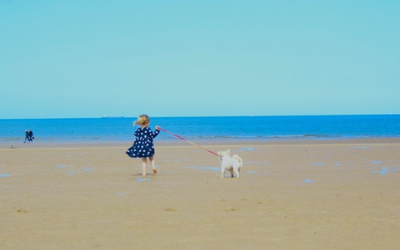
Taking away the ‘pandemic blues’ in blue

The Covid-19 pandemic affects not just the physical health of people but their mental and social health as well. Before the spread of coronavirus, common mental health problems such as anxiety and depression have been impacting people’s quality of life — their productivity and social relationships. In 2019, 14% of adults in Scotland reported two or more signs of anxiety whilst 12% reported two or more signs of depression. An increasing proportion of people who attempted suicide also worsens the mental health epidemic. This situation put pressure on the NHS due to the increasing demand for psychological and pharmacological interventions which may persist and be aggravated by the pandemic. The implementation of restrictive lockdowns affecting how people socialise and interact has potential impact on mental health and pose a global health concern.
Prior to the pandemic, the delivery of mental health services has been confronted by barriers negatively affecting patient enrolment and adherence to life-saving interventions. Most of these are due to inadequate healthcare funding, low staff knowledge and training, as well as inaccessible, unaffordable, and stigmatised mental health services. Alternatively, social prescribing has been widely piloted across Britain as a complementary and personalised health and social care service aiming to improve mental and social wellbeing of people without resorting to clinical interventions. People who benefited from social prescriptions are those with mental and social health concerns due to debilitating life events such as unemployment, sickness, and bereavement.
Green or nature prescriptions is a social prescribing variant that utilises ecosystem services of green (e.g., forestlands) and blue (e.g., lochs) environments. Green prescriptions have been piloted in Scotland through the Green Exercise Partnership (GEP), however, this mainly focused on improving the quality and accessibility to green spaces to normalise its use for health improvement. This slightly undercuts the richness and the health-promoting benefits of Scotland’s natural water environments.
Blue spaces or natural water environments have positive impact on human health and wellbeing. The health-giving benefits of blue spaces are associated to its natural features that expedite stress reduction and restoration through physical and social activities. Blue spaces also provide good ventilation and fresh air which is critical in reducing risks to coronavirus infection. Combining this to other features such as heat island reducing effect, noise abatement, and natural soundscapes, blue spaces create a favourable environment for physical and social activities such as swimming, surfing, river running, fishing, sightseeing, or any other structured or unstructured recreations. These physical and social activities facilitate stress reduction, recuperation, and restoration which are vital for mental health improvement.

According to Attention Restoration Theory (ART), the soft fascinating features of nature including blue spaces, play a key role in providing restorative benefits to humans. Humans are innately fascinated and connected with nature, however, this will be optimised if individuals are encouraged to escape from habitual activities and immerse themselves in nature. For some, this escape means freedom and adventure within the vastness, fragility, and depth of blue environments. To others, going to blue spaces means connecting to a pacific or peaceful environment providing solitude, euphoria, and refreshment. Some equate this to a homey state characterised by tranquillity, calmness, and serenity. These demonstrate that time spent in nature can improve mental fatigue and concentration through unforced brain use, eventually restoring individuals’ attention capacity.

The health benefit of blue spaces accentuates the greater need to protect it and improve its quality. Aside from visible pollution, natural water environments are at risk to emerging pharmaceutical pollution. Active pharmaceutical ingredients pose serious risks to water environments and the behaviour and life cycle of aquatic organisms. The increasing demand for antidepressants may results to its increasing concertation in blue spaces, putting at risk water biodiversity and drinking water quality. Aside from social prescriptions, there is a need to make existing mental health therapeutics more environmentally friendly. For instance, prescribing green pharmaceuticals contributes to minimising environmental risks of medicines by using environmental criteria in drug prescription. However, this requires in-depth investigation on the development and adoption of environmental classification of medicines and changes in established pharmaceutical prescribing practices.
In a post-Covid world, a sustainable healthcare intervention such as social or nature prescriptions and the prescription of green pharmaceuticals is a fundamental healthcare pathway. It does not only emphasise the important relationship of human health and the environment but also contributes to planetary health improvement. Promoting this sustainable healthcare strategy in health and social care settings through prescriptions of health and social care workers will strengthen public awareness on the health benefits of natural water environments. This will highlight how valuable water is and could drive investments to initiatives that aspire to protect, conserve, and make blue spaces more accessible for all.
